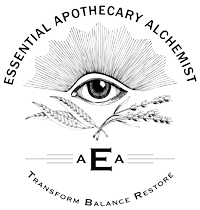Too Many Products Contain Rancid Oils...
Not All Oils Are Created Equal
As a maker, I am always curious about other brands' ingredients, their processes and packaging. I love to see, touch, and smell what other people are doing. I know it looks glamorous from the outside, but making products that you can be proud of, on the inside, is a lot of crucial decision making, hard work, and expense. Good skin care products will contain a fair amount of oil in them. Oils are usually about half of the ingredients for face creams and body lotions, while a good serum is almost all, if not all, oil. So, with such a concentrated amount of one ingredient in a product, it is important that you as a consumer be educated about the importance of the quality of that ingredient.
How to tell if your products are rancid
The sniff test
Most oils should have very little odor. The nut oils should have a sweet nutty smell. The best description of the smell of rancid oil is to think about the smell of a melting crayon. Rancid oils have a sharp, unpleasant, metallic, or bitter smell. Even when a product has fragrance or essential oils, you can perceive the smell of rancidity in the oils contained in a product.
How do we prevent rancid oils in our beauty products?
Quality, type and the right packaging
Cold pressed oils retain their nutrient value, including their innate oxidative protectant... vitamin E! Vitamin E is a fat soluble nutrient that has antioxidant properties, which protect cells from the effects of free radicals (read more about protecting from free radical damage). Free radicals are toxic byproducts of oxygen metabolism that can cause damage to living cells and tissue in our body. It is the nutrients in our foods that protect our cells from the damage of free radicals. Studies have also shown that Vitamin E taken internally and applied topically are effective in protecting the skin against the early damage introduced by ultraviolet radiation.
If the oil ingredients in the products you are using are not natural, cold pressed oils, the vitamin E content will be too low to protect the product from easily becoming rancid. Add to this, products that are put in clear glass containers, or plastic, are even more at risk. Heat and sunlight are a big factor in oxidizing oil ingredients.
Rancid oils pose a big health risk and should be considered toxic. When rancid oils are eaten or applied to the skin, free radical damage to the cells is increased. It is well known in natural medical circles, that rancid oils are considered carcinogenic, pro-inflammatory and very toxic.

Sources:


Back to BLOG